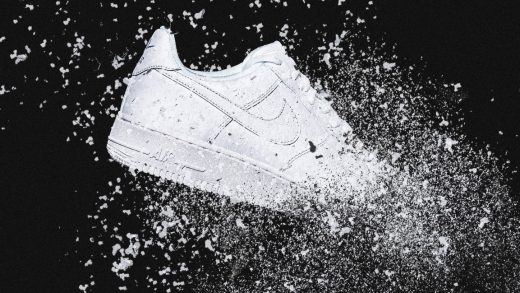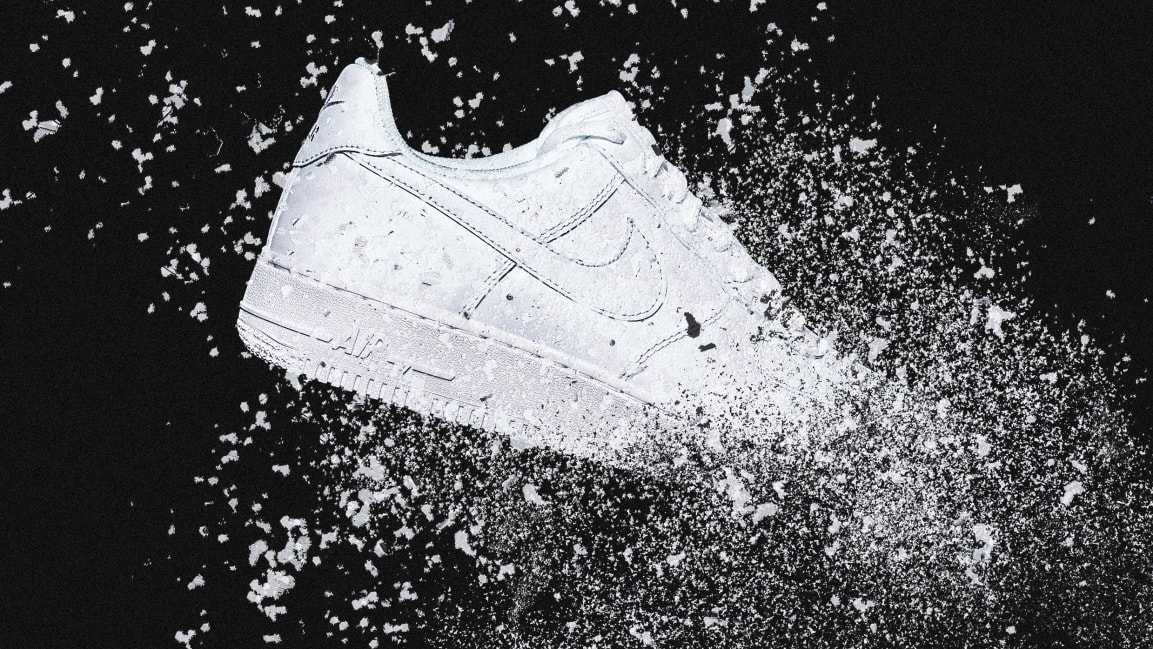Nike appears to be shredding brand-new shoes at a European recycling center
Inside a Nike store in Hamburg, Germany, as in the retailer’s other stores, there’s a box where customers can add old sneakers so they can be turned into ground-up materials used to pave basketball courts or make new soles for shoes. But when a German investigative team decided to find out what happened to an old pair of shoes added to the box—by adding a GPS tracker so they could follow the path—they discovered something unexpected at the recycling center: The brand also appeared to be destroying new shoes, something that violates a recently enacted German law.
The tracking device led to a facility in Belgium, not far from Nike’s large European distribution center. “It was open, so you [could] just enter the whole place,” says Christian Salewski, a journalist and founder of Flip, a research startup that partnered with German media outlets on a larger project examining the afterlife of sneakers. “We were just walking around, and we could see through open doors the machinery that was doing the grinding process. There were workers loading boxes on a table. That was the first time we thought, What is this? Because they were all brand-new shoes.”
Salewski watched as workers pulled paper out of the toes of the new sneakers and sent them down a conveyor belt. When he introduced himself, explaining that he was a journalist interested in the recycling process, workers at the plant confirmed that they only processed shoes for Nike, and the majority of the shoes that they processed appeared to be new.
The journalists returned to Germany and tried another experiment, buying a new pair of Nike shoes and then sending them back for a return. “We really took care that these shoes were not defective in any way—they didn’t have a scratch,” Salewski says. The only alteration, of course, was the GPS tracker, which showed the otherwise unblemished shoes traveling to the same recycling plant. Salewski visited the plant again and saw more new shoes, some with return paperwork, being processed. Nike didn’t respond to the journalists’ requests for more details.
Destroying the shoes likely violates a recent German law that requires manufacturers to attempt to make use of usable products rather than throwing them out or “downcycling” them, as in the Nike process. “They call it recycling, but it’s downcycling,” Salewski says, meaning that the materials lose their original value when they’re processed. While it’s possible to make sneakers from one material that can actually be recycled—that’s the intent of Adidas’s Futurecraft Loop, for example, though it hasn’t quite reached the point where one shoe can be turned into a new shoe—most are made from multiple materials, attached in a way that means they can’t be fully separated and reused. The Nike Grind material, made by grinding up the shoe, can be used for flooring or for shoe soles but not a completely new shoe. And while old shoes might be deemed unusable, it’s hard to make the same case about shoes that a customer has tried on once and returned. Under the German law, Nike may owe a 100,000-euro fine. (Salewski notes that’s not much of a rebuke, since the company might make that much in two minutes.)
In a statement to Fast Company, Nike said that the “vast majority” of shoes returned to the company are resold. “To keep athletes safe and performing with confidence, all footwear returns are analyzed for damage or tampering. Returned products that exhibit signs of damage or unacceptable wear are sent for recycling. Unworn and flawless items are returned to shelves to be resold. In addition, Nike sends wear test samples, defective product, sales samples, and other shoes that are not fit for performance to Nike Grind.”
The company noted that the shoe used in the investigation was tampered with to install the GPS tracker, though it’s not clear how a returns department would have known that was the case. “This could pose a safety hazard for athletes and consumers if resold,” the company said. “Per our policy and to keep athletes and consumers safe, tampered-with footwear is sent for recycling at our Nike Grind facility.” Nike also noted that it launched a new program in the U.S., Refurbished, to “extend the life of products that were gently worn,” and resell them at a discount; the program will launch in Europe next month.
But the practice of destroying sellable goods is common in the apparel industry. Burberry made headlines for burning unsold inventory in 2018; Coach recently dealt with the backlash from a viral TikTok showing bags that were slashed when they weren’t sold. Nike itself has been caught slashing unsold shoes in the past. And returns pose a problem not just in apparel but for all types of products. By one estimate, around 25% of returns may go straight to a landfill, creating billions of pounds of trash each year. As online shopping keeps growing, so do returns—and most retailers haven’t figured out how to responsibly manage the reverse logistics.
Fast Company , Read Full Story
(67)



